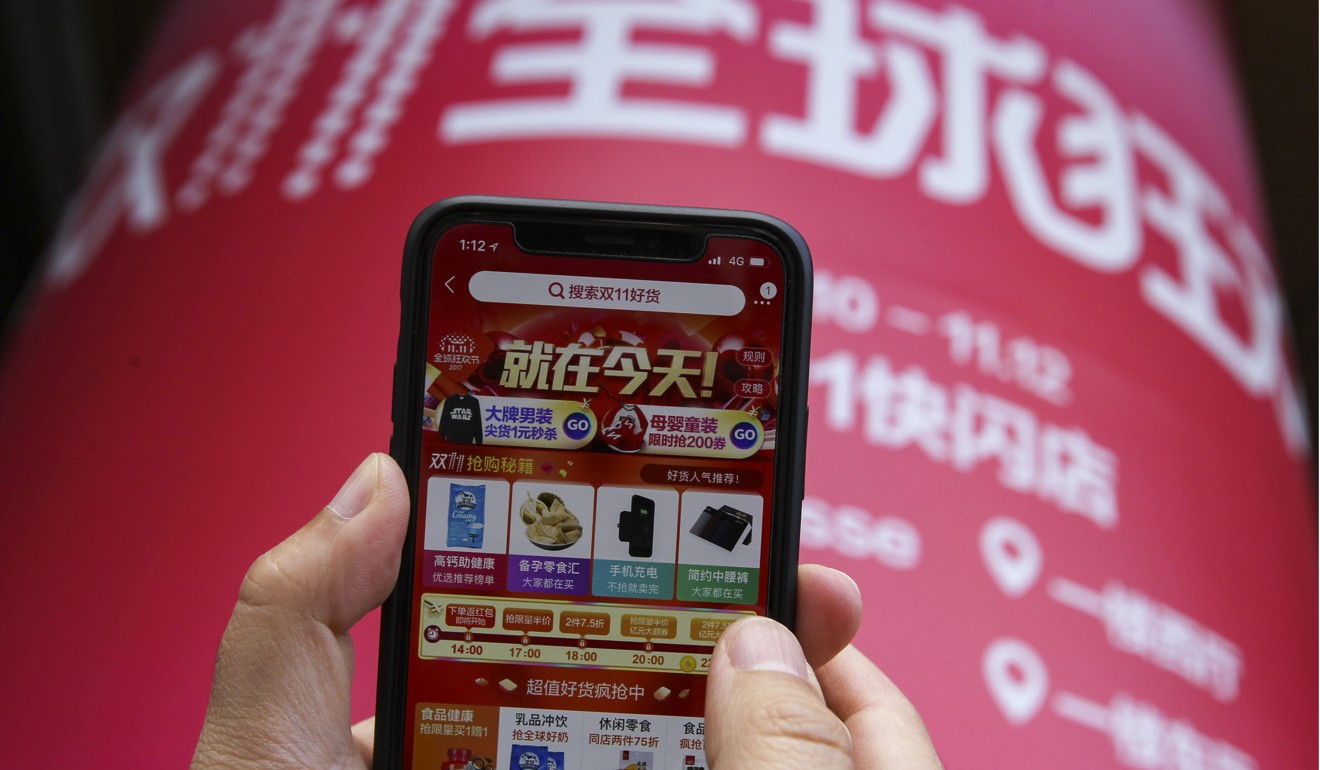
China’s young consumers don’t just want to shop online – they want to be entertained while doing it
Social commerce has exploded in popularity over the past two years, posing a threat to traditional e-commerce players like Alibaba and JD.com
The first time Sun Yuxiu heard of Pinduoduo was at the end of 2017, when her mother asked her to share in a discount deal on tissue packets. By ordering at the same time, they each got 20 per cent off the original price.
Since then, Sun, a Beijing-based office worker, has bought everything from live crabs to apples on the social commerce platform, combining purchases with her mother and aunt to get discounts.
Sun and her relatives are just a few of Pinduoduo’s 300 million paying customers in China, where the concept of social commerce has exploded in popularity over the past two years. Social commerce is a new form of e-commerce which involves social interactions among consumers, who also play a part in encouraging others to also purchase items.
Why Asia’s online customers are the real gold mine for banks
“The potential of social commerce is huge because people like to buy what their friends recommend. Increasingly, in China’s e-commerce landscape, people don’t know what sales channel to trust, but if they see their friends purchasing things on social commerce sites they are more likely to buy,” said Shaun Rein, the managing director of China Market Research Group and author of The War for China’s Wallet: Profiting from the New World Order.

The pervasive use of smartphones among mainland China’s population is a key factor enabling social commerce. Research firm Emarketer forecasts that the total number of smartphone-based online shoppers in the country will reach 443.3 million this year, making up more than three quarters of China’s online retail sales.
The potential of social commerce is huge because people like to buy what their friends recommend
China’s social commerce market will top US$150 billion with 24 million merchants selling on such platforms by 2020, according to e-commerce marketing firm Advangent. Still, that is only a fraction of China’s total e-commerce market which is forecast to reach US$1.7 trillion by 2020, according to Goldman Sachs.
When users open the Pinduoduo app, they are greeted with an array of products, many of which are priced below 10 yuan (US$1.58) including delivery – if the user manages to get at least one more friend to purchase the item together. The platform leverages each consumer’s network of friends on Tencent’s widely used WeChat platform, incentivising group-buying while simultaneously growing its user base as customers help spread the word of its platform by sharing deals with friends.
Gone in 60 seconds: Chinese snap up 80,000 Thai durians online
The company also gamifies e-commerce. For certain deals, further discounts are offered each time users share them with friends and when those friends share it with even more people. The more the deal gets shared, the deeper the discount.
Pinduoduo, which roughly translates as “buy more together”, is especially popular in provincial cities in China, with almost 65 per cent of users living in so-called tier 3 cities – those with a population under 3 million – according to data published by Jiguang Big Data last November. More than half of its users are also aged between 30 and 39.

“Social commerce becomes a form of low-cost mobile entertainment, especially for blue collar workers. Almost everybody has a smartphone now and shopping is not only cheap but fun,” said Rein.
Pinduoduo’s word of mouth e-commerce model, which leverages users’ desire to save money by encouraging friends to also make a purchase, makes it an extremely cost-effective way for e-commerce merchants to promote their products, according to Neil Wang, Greater China president of consultancy Frost & Sullivan.
“Compared to traditional marketing campaigns and advertising, Pinduoduo’s promotion channels are also more powerful in multiplying its influencing effect,” said Wang.
Chinese short video site Douyin cashing in on Generation Z eyeballs
Despite Pinduoduo’s meteoric rise, the company has attracted criticism from users for poor-quality products. Pinduoduo did not respond to queries about this issue.
The company’s exponential rise and unique business model has, not surprisingly, caught the attention of e-commerce giants Alibaba Group and JD.com – both have since launched similar apps to rival Pinduoduo.

In March, Alibaba introduced a new service called “Taobao Special Offer Edition”, which offers a wide range of goods, including clothes, iPhone cases and potato chips, many of which are priced below 20 yuan including delivery costs. Rival JD.com launched a new business line called JD Pingou, which also offers discounts if two or more people decide to purchase items together.
Another popular Chinese social commerce platform is Shanghai-based Xiaohongshu which operates like a combination of Instagram and Amazon where users share photos and videos, write posts and tag items in their pictures that link to e-commerce listings.
China’s e-commerce sector set for rapid growth as consumers go online for daily essentials
Xiaohongshu’s target demographic group is urban women between 18 and 35 years of age, with its total user base numbering more than 80 million. The platform is particularly popular among users born after 1995, according to the company. Many of Xiaohongshu’s users post photographs of themselves wearing make-up or showing off new skincare products, and interested buyers can browse the site to see what others are saying about a specific make-up products they wish to purchase.
Xiaohongshu’s social commerce model, which allows users to both generate content and form a community, has attracted some of China’s biggest celebrities – though they are not paid to endorse the site, according to the company. Chinese actresses Fan Bingbing and Maggie Jiang Shuying, as well as Jelly Lin Yun – known for her leading role in Stephen Chow’s The Mermaid – have accounts on Xiaohongshu, often sharing images of their outfits or skincare products that they use.
Any company not embedding their service or product with social media and connectivity is at risk
Vivi Li, 26, a Shanghai native, has been using Xiaohongshu for over a year, regularly posting reviews of skincare or make-up products on her feed.
“I spend about half an hour on Xiaohongshu each day, sharing some photos or writing posts and browsing my feed,” said Li. “I also use it as a search engine of sorts to read reviews about any products I’m eyeing.”
The rise of social commerce could pose a threat to e-commerce incumbents like Alibaba, the parent company of South China Morning Post, as well as JD.com, according to analysts.
“Any company that is not embedding their service or product with social media and connectivity is at risk,” said Jeffrey Towson, an investment professor at China’s Peking University.
“However, e-commerce is not a winner take-all business. It tends to have lots of winners and interesting niche plays … so it is different than [services like] WeChat or Didi, where you really expect one or two winners and everyone else dies.”
Additional reporting by Meng Jing

